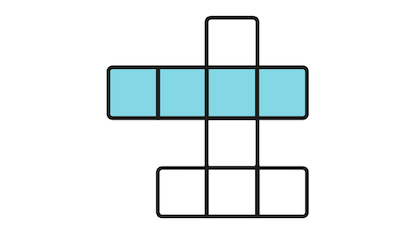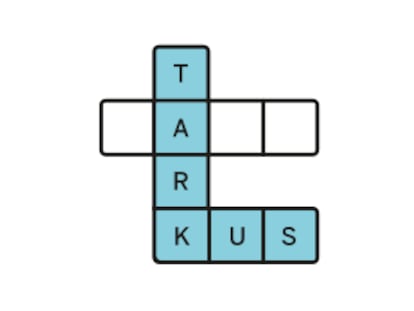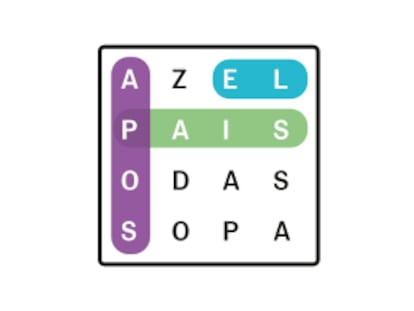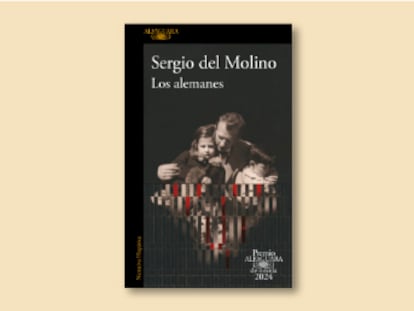La gran filtración
Cable en el que se desvela que dirigentes religiosos de Nayaf recelan de la dominación ideológica iraní
EE UU manifiestan que no pueden competir con el dinero iraní y cuentan que los religiosos de Nayaf han pedido al Gobierno de Bagdad que no extienda los visados a los estudiantes iraníes para limitar la influencia de su vecino.
| ID: | 185694 |
| Date: | 2009-01-05 11:59:00 |
| Origin: | 09BAGHDAD11 |
| Source: | Embassy Baghdad |
| Classification: | SECRET |
| Dunno: | |
| Destination: | VZCZCXRO9693 PP RUEHBC RUEHDE RUEHDIR RUEHIHL RUEHKUK DE RUEHGB #0011/01 0051159 ZNY SSSSS ZZH P 051159Z JAN 09 FM AMEMBASSY BAGHDAD TO RUEHC/SECSTATE WASHDC PRIORITY 1100 INFO RUCNRAQ/IRAQ COLLECTIVE RUCNIRA/IRAN COLLECTIVE |
S E C R E T SECTION 01 OF 03 BAGHDAD 000011 SIPDIS E.O. 12958: DECL: 01/05/2028 TAGS: PGOV, PINS, KISL, IZ SUBJECT: NAJAF CLERICAL LEADERS FEAR IRANIAN IDEOLOGICAL DOMINANCE Classified By: Political Minister Counselor Robert S. Ford for reasons 1.4 (b) and (d) 1. (S) SUMMARY. Three well-placed contacts in the Shia holy city of Najaf told us December 27 that Iranian influence there is strong and that Ayatollah Muhammad Said al-Hakim, whose family has ties to Iran, likely will succeed the aging Ayatollah Sistani. They each opined al-Hakim could begin changing the Najaf clerical establishment's long-time opposition to the concept of clerical rule (velayat-e faqih). One contact stated that the Najaf clerics have secured permission from the Iraqi government to start refusing to extend student visas for Iranians studying in Najaf in order to limit Iranian influence. Like many clerics here, these contacts were keenly political and they obviously dislike and fear the ISCI political party. They asked the U.S. to do more in Najaf to help limit the Islamic Supreme Council of Iraq (ISCI) and Iran but xxxxxxxxxxxxx was insistent this be done indirectly and with extreme caution. END SUMMARY. ------------------------------------------ Iran, ISCI Spreading Velayat-e Faqih in Najaf ------------------------------------------ 2. (S) PMIN and Poloffs on December 27, 2008 discussed with contacts close to the Najaf hawza (seminary), Iranian influence in Najaf and hopes for U.S. assistance in combating those exposing velayat-e faqih (clerical rule). XXXXXXXXXXXX 3. (S) XXXXXXXXXXXX decried the Iranian government's attempt to directly and indirectly spread its influence in Najaf. During the debate in the Iraqi parliament about the U.S.-Iraq Security Agreement, XXXXXXXXXXXX said the Iranian Foreign Ministry and the Islamic Revolutionary Guard Corp Qods Force commander Qasem Soleimani sent separate envoys to convince the marja'iya to speak against the agreement. XXXXXXXXXXXX claimed that the marja'iya responded that it would be inappropriate for them to comment on a security/political issue as a way of dodging Iranian pressure. XXXXXXXXXXXX also said Iran is giving money to Iranian students in the hawza, primarily through Supreme Leader Khamenei's office located in Najaf. Iran generally disperses small amounts -- money for furniture or books, for example -- but recently gave a large sum to help a hawza student with his medical treatment, XXXXXXXXXXXX claimed. XXXXXXXXXXXX said that through financing Shahid al-Mihrab (Martyrs of the Pulpit) -- the Islamic Supreme Council of Iraq's (ISCI) social and educational organization -- Iran aims to spread the popularity of velayat-e faqih. (Note. Shahid al-Mihrab is led by Ammar al-Hakim, ISCI's heir apparent. It is also the name ISCI is using nationwide for its provincial election coalition. End note.) XXXXXXXXXXXX said Shahid al-Mihrab must be receiving Iranian funding to be able to finance its wide network of offices in Iraq and abroad. (Comment: While driving through Najaf, PMIN noticed the construction of a large Shahid al-Mihrab complex at the 1920 Revolution Square along the city's main East-West boulevard on property owned in 2003 by the now ISCI-dominated provincial government.) ------------------------------------------ "Moderates" Unable to Compete With Iranian Money ------------------------------------------ 4. (S) XXXXXXXXXXXX said in response to alleged infiltration by Iranian intelligence, the hawza secured permission from the Iraqi government to stand up a committee to review residence permits of non-Iraqi students at Najaf's religious schools. They have, he stated, allowed only the few Iranian students who were present before the U.S. invasion to continue their studies in Najaf. Other Iranian students are not receiving renewals on their student residence permits and are being asked to leave Najaf when their permits expire. 5. (S) XXXXXXXXXXXX did not make a particular pitch on politics aside from warning about Iranian influence. By contrast, XXXXXXXXXXXxx -- who also favor the "quietist" clerical tradition of Sistani and Fayad -- were pessimistic about the chances of "moderates" in the upcoming elections because ISCI and Da'wa have been able to disperse government jobs and contracts to boost their support. (Note. XXXXXXXXXXXxx is a parliamentarian from former Prime Minister Ayad Allawi's party and Kalantar, given the alternatives, probably also supports Allawi. End note.) BAGHDAD 00000011 002 OF 003 6. (S) XXXXXXXXXXXxx joked about ISCI's campaign slogan "With you, with you," by rhetorically asking "with who? Iran?" When asked about ISCI's history in Najaf, XXXXXXXXXXXxx pointedly said ISCI had zero support prior to 2003 but were able to use its Iranian-origin militia, the Badr Corps (now Badr Organization), to gain power. Despite switching its religious source of emulation to Sistani, XXXXXXXXXXXXX claimed his Badr Organization contacts still refer to the Iranian Supreme Leader as "Sayyid al-Wali" (the Master). ------------------------------------------ Fears of Grand Ayatollah Hakim Succeeding Sistani ------------------------------------------ 7. (S) Our three hawza contacts fear that Iran's push in Najaf coupled with ISCI's political dominance in the province are increasing the likelihood that Grand Ayatollah Muhammad Said al-Hakim will succeed Sistani as Iraq's lead cleric. Hakim -- a nephew to ISCI chairman Abd al-Aziz al-Hakim -- favors Iranian velayat-e faqih, all three contacts said. XXXXXXXXXXXXX claimed it was telling that Hakim last year told his followers to celebrate the festival marking the end of Ramadan (Eid al-Fitr) on the day announced by Iran's Khamenei, not Sistani. XXXXXXXXXXXX was certain Hakim was now the probable replacement. Rubai highlighted that fellow Najaf Ayatollah Bashir al-Najafi al-Pakistani has begun speaking in favor of Hakim, something he was not doing only a couple of years ago. XXXXXXXXXXXX each claimed that al-Hakim and Sistani each give out relatively generous gifts of money to needy students and professors -- this is how one helps build influence, they observed. By contrast, al-Najafi and Fayad have few resources for such gifts, they noted. ------------------------------------- Seeking U.S. Support, But Carefully Done ------------------------------------- 8. (S)XXXXXXXXXXXX bluntly told PMIN the U.S. should, with a hidden hand, fund moderate hawza groups to counter ISCI and Iran. However, XXXXXXXXXXXX said the United States regularly irritates the marja'iya by, for example, clumsily -- if only briefly -- detaining important clerical figures. Perceived American protection of the Mojahedin-e Khalq (MEK) also raises questions about American judgment and intent, he claimed. (He didn't argue when PMIN reviewed our policy on MEK but he said our position was not at all clear in Najaf.) XXXXXXXXXXXX added that U.S. officials releasing to the media the contents of private discussions between the Coalition Provisional Authority and top Najaf clerics had led the clerics to decide not to speak to the U.S. directly. XXXXXXXXXXXxx advised that the U.S. should not associate itself with ISCI cleric Jalal ad-Din al-Saghir because he is hostile to the Najaf hawza. When asked how "moderate" groups planned to compete in the provincial and national elections in 2009, XXXXXXXXXXXxx clearly were defeatist and lacked a practical vision. XXXXXXXXXXXxx fatalistically repeated that "there must be a (political) explosion" before Iraq rids itself of the religious parties. -------- Comment -------- 9. (S) Our meetings with XXXXXXXXXXXxx reflect a broad trend in Iraq: the disenchantment and disorganization of those Shia leaders who feel locked out of the political process and who feel ISCI and Da'wa have used their positions in government to write rules favorable to themselves. Many Shia still believe ISCI is controlled by the Iranian government and that the Badr Organization wields power covertly in Iraq. These Shia dismiss evidence that ISCI is becoming increasingly responsive to its Iraqi QISCI is becoming increasingly responsive to its Iraqi constituents and over the past few years have explicitly acted against Iranian interest -- for example, by supporting the U.S.-Iraq Security Agreement. 10. (S) Comment continued. The looming passing of Grand Ayatollah Sistani makes Najaf pivotal for Iraq's ideological future. XXXXXXXXXXXxx is a long-time contact of ours and, XXXXXXXXXXXXX is well-placed to give us insights into the top clerics' thinking. He was extremely nervous about being seen with PMIN and other American diplomats, insisting on doing the meeting in XXXXXXXXXXxx not Najaf. His skittishness reminds of how cautious Sistani and the other ayatollahs are about being seen to meet with or collaborate with the Americans. XXXXXXXXXXXxx was adamant that we should help contain Iranian influence in Najaf but that it had to be done indirectly by helping Iraqi organizations who themselves want to limit Iranian influence. Overaggressive or direct U.S. involvement in Najaf's religious scene would, according to BAGHDAD 00000011 003 OF 003 his analysis, backfire, undercutting those pro-American Iraqis walking a fine between religious purity and earthly power that could be derived from U.S. support. If XXXXXXXXXXXxx analysis is correct, Iraqis (and to a lesser extent Iranians) will always be better placed than the U.S. to understand and work within the nuances of Najaf's religious society. END COMMENT. CROCKER |
Traduce este documento »
Traducción automática. Puede que el texto traducido no sea fiel al original
Únete a EL PAÍS para seguir toda la actualidad y leer sin límites.
Suscríbete_







































































